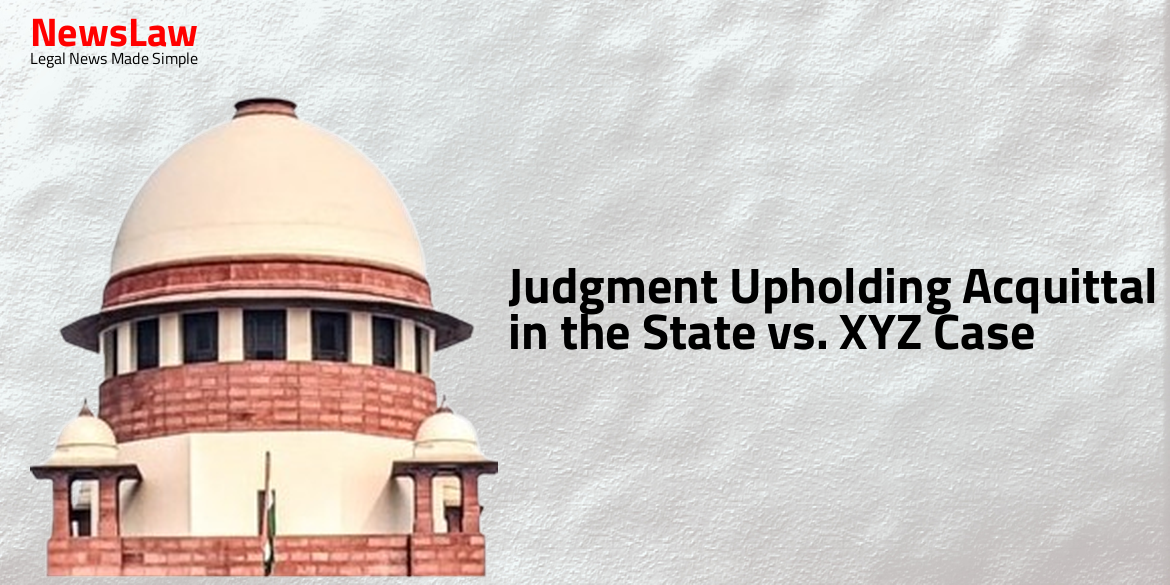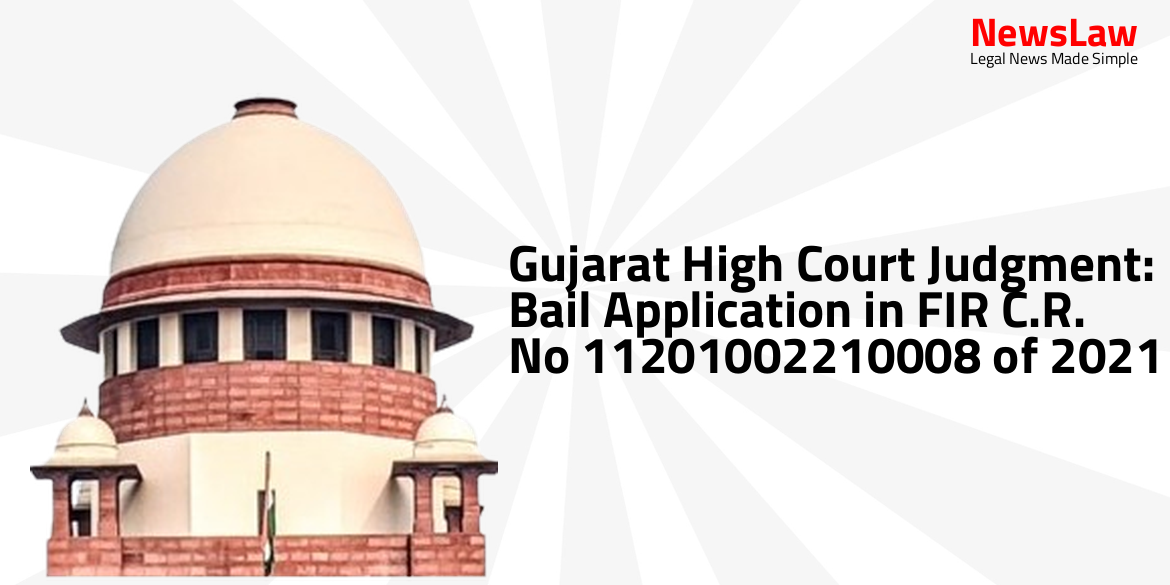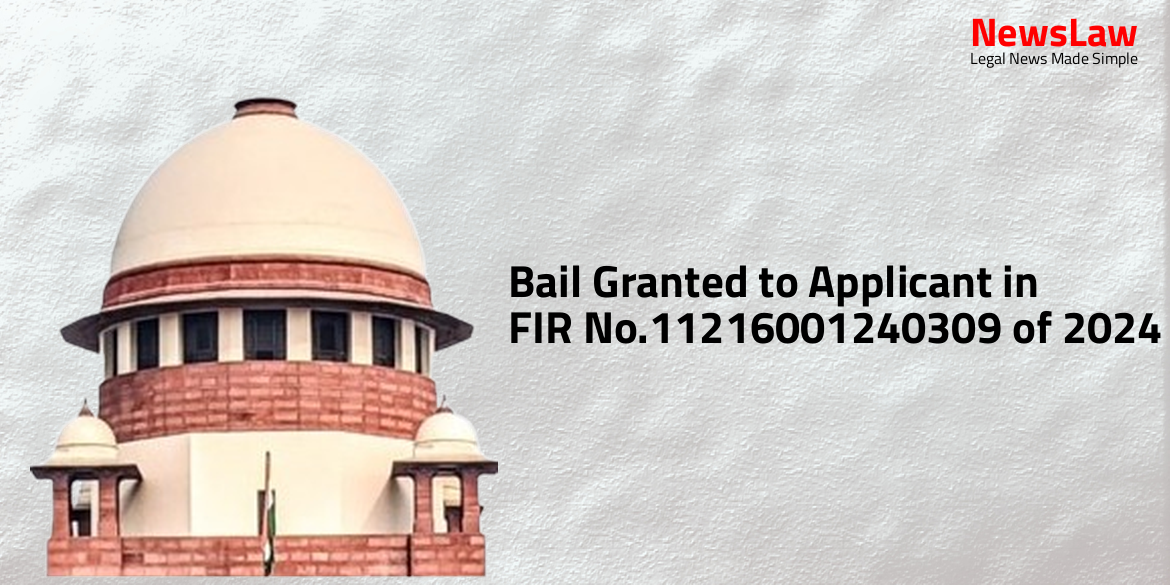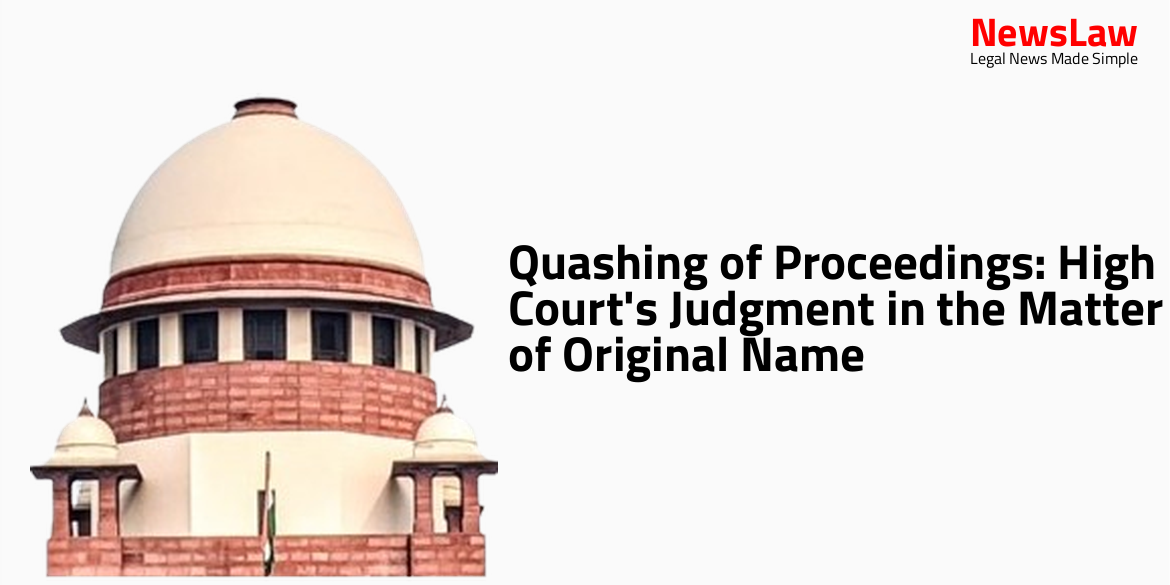In a significant ruling by the Gujarat High Court, the judgment in the State vs. XYZ case has been upheld, affirming the acquittal of the accused. The case involved allegations under Sections 498(A) and 306 of the Indian Penal Code. The court’s decision, after careful consideration of the evidence, sets important precedents in criminal jurisprudence. Stay updated on the latest legal developments by reading the full summary on our platform.
Facts
- The Appellant-State is challenging the judgment and order of acquittal from the Additional Sessions Judge, Fast Track Court No.5, Jamnagar.
- The respondents were acquitted for the offenses under Sections 498(A) read with Sections 306 and 114 of the Indian Penal Code.
- The case of the prosecution alleges specific offenses against the respondents.
- Father of the deceased lodged a complaint with the police station regarding his daughter’s marriage and subsequent suicide by self-immolation.
- The accused, including the husband of the deceased, pleaded not guilty and claimed they were falsely implicated.
- The investigation commenced based on the complaint filed by the deceased’s father.
- Witnesses, including family members and medical professionals, were examined during the trial.
- Allegations of mental and physical torture leading to the victim’s suicide by setting herself on fire were presented.
- The court of the Additional Sessions Judge passed the judgment and order after hearing all sides.
- The accused include the deceased’s sister-in-law and mother-in-law.
- Various documentary evidence, such as medical papers, inquest panchnama, post mortem report, and complaints, were relied upon by the prosecution.
Issue
- The issue at hand pertains to the interpretation of Article ___ of the Constitution of India.
- The primary argument revolves around the application of a specific provision in relation to the facts of the case.
- Both parties presented contrasting interpretations of the constitutional provision in question.
- The Court examined previous precedents and relevant legal principles to determine the correct interpretation.
- The crux of the issue lies in reconciling the text of the Constitution with its intended purpose and the present circumstances.
- The resolution of this issue will have far-reaching implications on similar cases in the future.
Arguments
- The Additional Public Prosecutor argues that the presence of the accused in the crime is proven based on medical evidence.
- The complainant’s evidence is supported by the First Information Report filed after the incident.
- The testimonies of the father, mother, and grandfather of the deceased establish physical and mental torture inflicted on the deceased.
- The Judge erred in disregarding the dying declaration of the deceased and giving the benefit of doubt to the accused.
- The medical evidence does not support the prosecution’s case according to the Additional Public Prosecutor.
- Referring to a Supreme Court case, the Additional Public Prosecutor argues that this is a case warranting the High Court’s interference and reversal of the acquittal order.
- The Additional Public Prosecutor asserts that the prosecution has proven its case beyond a reasonable doubt.
- The provisions of Section 113(A) of the Indian Evidence Act should have been considered, especially due to the short duration of the deceased’s married life.
- In the dying declaration, the deceased claimed the incident was due to an accident while lighting the stove, contradicting other evidence.
- The husband of the deceased took her to the hospital as mentioned in her dying declaration.
- No case can be attributed to the respondents based on the evidence.
- The deceased suffered 85% 2nd degree burns while the husband had 70% burns, as stated in the deposition in the presence of panchas.
- Advocates for the respondents pointed out discrepancies in the evidence led by the complainant.
- The date of the incident was 04.06.2005 and the deceased passed away on 10.06.2005, as per the Inquest Panchnama.
- The accident occurred when the deceased was at her residence attempting to light the stove.
Analysis
- Courts in an appeal against acquittal do not need to rewrite the judgment or present new reasons if the lower court’s reasons are valid.
- The dying declaration recorded by the Executive Magistrate while the deceased was conscious and certified by a doctor holds significance in the case.
- To reverse an acquittal, the appellate court must find a clear error of law or fact, rendering the decision perverse or illegal.
- The appellate court will not interfere with an acquittal unless the lower court’s approach is fundamentally flawed, leading to a conclusion no reasonable person would reach.
- The High Court’s power to convert acquittal to conviction in an appeal is analyzed in light of exceeding jurisdiction claims by the appellant’s counsel.
- Thorough examination of the evidence including witnesses’ testimonies, Dying Declaration, Janva Jog Entry, and Inquest Panchnama were conducted by the Court.
- The appellate Court has the power to review the evidence if the lower Court’s conclusion is perverse or contains a manifest error of law.
- The appellate Court must re-evaluate the evidence comprehensively to ensure a just decision based on the material on record.
- Various principles and guidelines have been laid down by the Apex Court regarding appeals against acquittals.
- The appellate Court should not disturb the finding of acquittal by the Trial Court if there are two reasonable conclusions possible based on the evidence.
- The presumption of innocence is a fundamental principle in criminal jurisprudence, and the Court must not condemn an innocent person.
- The appellate Court can review and reconsider the evidence upon which the acquittal is based.
- The Court’s primary aim is to prevent any miscarriage of justice and ensure that no innocent person is wrongfully convicted.
- In cases where two views are possible, the appellate Court should not interfere with the acquittal unless there are compelling reasons.
- Expressions like ‘substantial and compelling reasons’ are not meant to limit the Court’s power but to emphasize the caution needed when overturning an acquittal.
- The conclusion by the learned Sessions Court necessitates the acquittal of the accused from the charges.
- The reasons given by the trial court align with various judicial precedents and are deemed just and lawful.
- The impugned judgment is considered adequate and correct without needing any revision by the Court.
- The facts of the case, notably elaborated in Paragraph 24 of the judgment, have been thoroughly examined by the competent Court.
- The learned Additional Public Prosecutor for the State has failed to present any evidence to contradict the trial court’s approach or demonstrate any manifest illegality or perversity in the decision.
Decision
- Bail bond stands cancelled
- Record and proceedings to be sent to the concerned Trial Court
- Appeal dismissed due to lack of merits
- Judgment and order of acquittal on 30.03.2007 confirmed
Case Title: THE STATE OF GUJARAT Vs. RAMESHBHAI KARSHANBHAI GOHIL
Case Number: R/CR.A/435/2008



